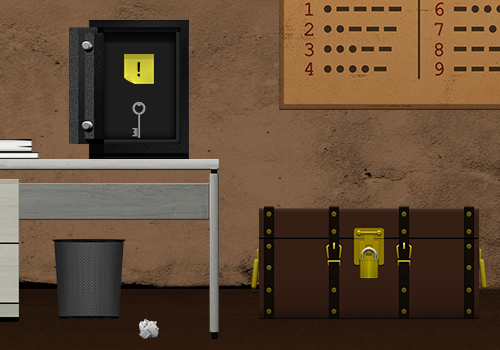Study a World of Experience and Problem-Solving in Escape Rooms
Getaway areas have surged in popularity, providing a special mix of experience and cognitive obstacle that captivates participants of all ages. From unraveling intricate historical mysteries to navigating spooky, spine-chilling situations, each area provides an unique narrative that tests your analytical acumen. Whether you're an interested newbie or a skilled lover, the attraction of these immersive challenges bids.
The Rise of Escape Rooms
Escape rooms have seen a substantial rise in popularity over the previous decade, changing from niche amusement to a mainstream phenomenon. Coming from Japan around 2007, these interactive challenge games swiftly astounded target markets worldwide. The immersive experience of being "locked" in an area and working collaboratively to resolve challenges within an established timeframe offers a special blend of adventure and cognitive obstacle.
The surge of getaway rooms can be associated to several factors. The interactive nature of retreat rooms offers a tangible contrast to the online avoidance widespread in electronic gaming.
Furthermore, the social element can not be forgotten. Retreat rooms foster partnership and interaction, encouraging participants to pool their skills and expertise. This joint initiative not only enhances the experience however likewise constructs friendship among gamers. Moreover, the continuous evolution of puzzle design and technical integration makes sure that escape spaces remain fresh and difficult, contributing to their sustained popularity.
Kinds Of Escape Room Themes

One prevalent motif is the "Secret and Investigative" style, where participants presume the duty of detectives entrusted with addressing a criminal offense or uncovering a concealed fact. These areas often feature complex challenges and narrative-driven difficulties that call for keen monitoring and rational thinking.
One more popular theme is "Historic and Adventure". Below, gamers could locate themselves in ancient Egypt, navigating through a pharaoh's tomb, or throughout The Second World War, decoding adversary messages. These styles offer an academic spin, blending historic realities with appealing gameplay.
For those seeking an adventure, "Scary and Paranormal" retreat spaces provide spine-chilling experiences. Set in haunted houses or deserted asylums, these rooms rely upon climatic impacts and mental scares to increase the tension.
Trick Abilities for Success
Success in escape areas hinges on a blend of critical abilities that participants must harness to conquer the diverse obstacles they will certainly experience. Equally essential helpful site is teamwork; getaway areas need a collaborative effort, where each individual's toughness are utilized to deal with numerous puzzles and tasks efficiently.
Analytical thinking is additionally vital, enabling groups to explore complicated puzzles and develop sensible links between diverse components within the room. Time monitoring is a further essential, as the taken care of duration of getaway space experiences requires reliable allotment of time to different jobs and challenges.
The ability to pivot techniques when initial plans falter guarantees that teams can dynamically react to developing challenges. Mastery of these skills collectively improves the possibility of a successful retreat.
The Psychology of Problem-Solving
Recognizing the psychology of analytical is important for browsing the elaborate obstacles presented by retreat rooms. Problem-solving is a cognitive process that includes acknowledging a problem, creating possible services, assessing them, and after that performing the most effective strategy. Cognitive psychologists have long studied this procedure, identifying various phases such as problem identification, structuring the problem, and using heuristics or algorithms to find options.
Escape rooms produce an environment where participants have to rapidly move through these cognitive phases under stress. The high-stakes, time-constrained this post nature of escape rooms can cause a state of heightened arousal, which can either boost or impair cognitive performance depending upon the person's anxiety reaction. The Yerkes-Dodson Law suggests that modest tension degrees can optimize problem-solving abilities, whereas too much stress can be detrimental.
Furthermore, escape areas often call for collaborative analytic, leveraging group characteristics to enhance cognitive processes. Comprehending these psychological concepts can dramatically boost one's capacity to solve complicated problems effectively.
Tips for First-Timers
Embarking on your first escape space experience can be both thrilling and complicated. The even more differed the ability set, the better furnished you'll be to tackle various kinds of puzzles.
Communication within the team is extremely important. Share findings and insights quickly, as one person's discovery might be the missing item an additional needs. Avoid one-track mind; if a problem appears impossible, pass it on to a teammate to get a fresh perspective.
Time management is also essential. Watch on the clock and designate your time sensibly. It could be sensible to move on and return to it later. if a particular challenge is eating as well much time.

Conclusion
Escape rooms offer a special mix of experience, cognitive difficulty, and immersive storytelling, making them a popular choice for both entertainment and skill development. The emotional advantages gotten from these experiences prolong beyond the escape room, fostering boosted cognitive features and social abilities.
The constant advancement of puzzle layout and technical assimilation ensures that escape spaces stay fresh and difficult, adding to their continual popularity. - escape room
Equally crucial is team effort; getaway areas need a joint initiative, where each individual's toughness are made use of to deal with my company different problems and tasks successfully.
Time management is a more necessary, as the taken care of period of retreat area experiences demands efficient allocation of time to different tasks and challenges.
Comprehending the psychology of analytical is crucial for navigating the detailed challenges offered by escape spaces.Furthermore, escape areas frequently call for joint analytic, leveraging group dynamics to improve cognitive procedures.